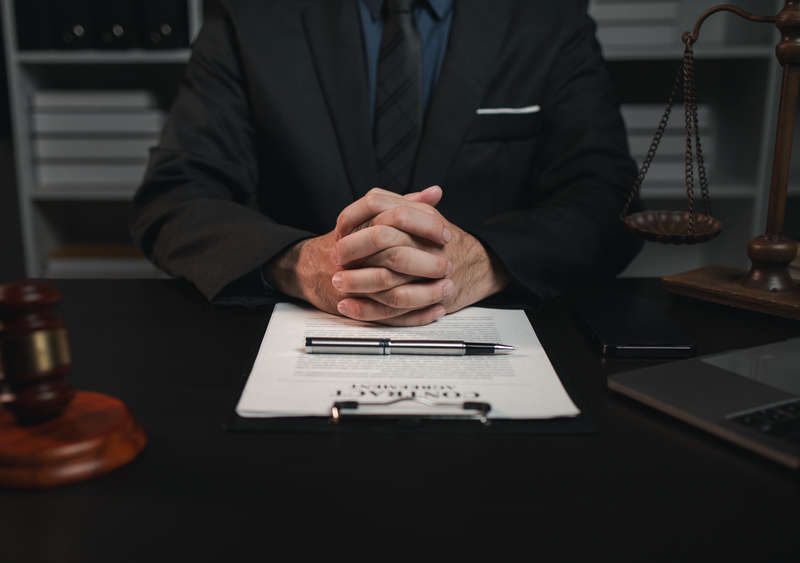Table of Contents
-
1
When it became effective on January 1, 2020, the Illinois AI Video Interview Act became one of the very first laws in the U.S. to address AI in hiring.
-
2
The law provides the candidate the right to get their video deleted from the AI system within 30 days if they want.
-
3
In 2024, Illinois took another step forward regarding AI regulations. The state passed House Bill 3773, which imposes new obligations beginning January 1, 2026. The existing regulations will now require employers to be more careful to avoid any discrimination when using AI tools for hiring decisions, not just video interviews.
AI is reshaping how employers' source, screen, and interview candidates - and regulators are racing to keep pace. Two marquee rules lead the way: Illinois’s AI Video Interview Act and New York City’s Local Law 144 (the “AEDT Law”). Both aim to make hiring fairer and more transparent, but they take noticeably different paths, impose different obligations, and carry different risks. This article breaks down what each law covers, who it applies to, and the practical steps employers need to take.
What is the Illinois AI Video Interview Act?
When it became effective on January 1, 2020, the Illinois AI Video Interview Act became one of the very first laws in the U.S. to address AI in hiring. This law is focused particularly on video interviews in which AI technology examines a job candidate's responses, facial expressions, and other characteristics.
The law requires employers to take specific steps before using AI to assess video interviews. Employers must inform candidates that they are using AI, provide information explaining how the AI works and what general characteristics it uses to evaluate applicants, and obtain consent from candidates before proceeding. The law provides the candidate the right to get their video deleted from the AI system within 30 days if they want.
In 2024, Illinois took another step forward regarding AI regulations. The state passed House Bill 3773, which imposes new obligations beginning January 1, 2026. The existing regulations will now require employers to be more careful to avoid any discrimination when using AI tools for hiring decisions, not just video interviews.
What Is NYC's Local Law 144 (AEDT Law)?
New York City's Local Law 144, which became effective on July 5, 2023, approaches AI use in employment with a broader approach. Local Law 144 regulates what it calls "Automated Employment Decision Tools" or AEDTs. AEDTs are computer programs that use machine learning, statistics, or other data analysis techniques to inform the employer's decision about hiring, promotion, or other similar decisions.
While the Illinois law is focused only on video interviews, the NYC law covers all sorts of AI-based tools relating to employment. This includes resume screening software, personality tests, and skill tests, and basically any type of automated system that helps filter or rank job candidates or employees.
The key requirement in NYC Law 144, is that companies must perform annual bias audits on their AI tools. These audits are used to check whether the AI tools being used are treating different groups of people fairly with regard to race, ethnicity, and gender. The results of these audits must then be published on their website for public view.
Key Differences Between the Two Laws
1. Scope of Coverage
The most apparent difference between each of these laws is what the laws apply to, the original Illinois law explicitly applied to AI video interviews, while the NYC law applied to all automated employment decision tools under the umbrella of AI. Hence, if a company in New York City decides to use an AI tool to screen resumes or conduct video interviews or to help make decisions about promotions, they are subject to the rules. Illinois original law would only apply where AI analyzed a video interview, but the 2024 updates will expand that coverage.
2. Geographic Application
The law in Illinois covers any employer conducting video interviews, for positions located in Illinois regardless of the company location. NYC's law covers employers/employment agencies using AEDTs in the hiring process for positions located in the city limits, and notice obligations apply to candidates who are New York City residents (including certain fully remote roles associated with a NYC office). So, a company located in California hiring for a job located in Manhattan is required to comply with the local NYC AEDT law, while that same company hiring for a Chicago job must comply with Illinois law for video interviews.
3. Notice Requirements
Both Illinois and New York laws require employers to notify candidates regarding the use of AI, but the timing and specifics of it differs a lot. Illinois requires employers to notify candidates before the video interview and must get consent. The employer must tell the candidate what attributes the AI will be looking for and how it will be used.
New York City requires employers to provide candidates notice of at least 10 business days before using an AEDT, and this notice requirement applies to candidates who reside in the city. The notice must include information about what the AEDT tool assesses and how to request an alternative selection process or accommodation, and where candidates can read about the employer’s data retention policy and the types of data collected. However, New York City does not require explicit consent from the candidates like Illinois does.
4. Bias Audit Requirements
This is where the laws show the greatest variation. NYC Law 144 calls for an independent bias audit every year, and before utilizing any AEDT, for companies to use AEDT. The audit must calculate impact ratios that show how the tool has an impact on various demographic groups. The audit results must be publicly posted on the employer's website, with specific statistics to show selection rates for various groups.
Illinois's initial law requires no bias audits at all. But it does require employers that rely solely on AI analysis of video interviews to determine whether an applicant proceeds to an in-person interview to report demographic data to the Illinois Department of Commerce and Economic Opportunity; there is no 100-interview threshold in the statute. The 2024 updates to Illinois law will expand the requirements to address preventing discriminatory effects, but still will not require the public bias audits that New York City requires.
5. Data Rights and Privacy
Illinois provides candidates with specific privacy rights, which do not exist under the NYC law. Under the Illinois law, candidates can request the deletion of their video interviews, and employers are obligated to delete the video within 30 days. The law also limits who can view the videos - employers can't share them with anyone except for those who need to view them for purposes of evaluating the candidates
NYC's law, while not giving candidates the right to delete their data, does require employers to inform candidates of their data retention policies, and what data types they collect.
6. Penalties for Non-Compliance
The consequences for violations of these laws are also different. For example, in New York City companies can face fines of a minimum of $500 for a first violation; and up to $1,500 for each subsequent violation. Each day of non-compliance and each candidate impacted is counted as a separate violation which can result in rapidly accumulating fines.
The Illinois law does not specify penalties or designate an enforcement agency; employers submit any required demographic reports to the Department of Commerce and Economic Opportunity.
What This Means for Employers
Organizations using AI to assist in their hiring process should be mindful of the laws that apply to them. If a business is hiring in both Illinois and New York City, the organization must now comply with both sets of requirements, i.e. conduct bias audits for NYC positions and request consent for video interviews in Illinois.
Regulating AI in the workplace is a trend, as we saw Colorado pass its own AI law effective in 2026, and other states contemplate similar legislation. This patchwork of state and local laws creates difficulties for employers, especially for those who hire across multiple locations.
For organizations, the safest option is to implement the most stringent standards across all hiring practices. This could mean conducting bias audits in jurisdictions where they are not mandated, being transparent about any AI use in any of their jurisdictions, and giving candidates control over their data regardless of where they live.
What This Means for Job Seekers
Whether you are applying for jobs or starting a new job, these laws are important rights depending on the jurisdiction where the position is located. In Illinois, you have a right to know when AI will analyze your video interview and you can refuse to participate. You can request to have your video deleted after the interview process.
In New York City, you should be able to find info regarding bias audits if the company used AI tools. You should receive notice before the company uses AI to assess your job application, and this should give you the opportunity to ask questions or seek possible alternatives.
Looking Ahead
Both Illinois and NYC have been keeping their approaches on AI regulation current and up to date. The 2024 amendments in Illinois show the state is interested in expanding coverage beyond just video interviews. NYC regularly checks and updates its guidance for companies to ensure they are in compliance with Local Law 144.
Given that artificial intelligence is increasingly used in hiring, it is likely that we will see more laws of this nature. The federal government is proposing nationwide standards for artificial intelligence around employment; these could lead to standardization across the country.
For now, these two laws illustrate different paths for increasing fairness, transparency and non-discrimination by AI hiring tools. While Illinois focused first on consent and transparency while New York City focused on testing for bias and public accountability, and worker protections, in the end both state and city believed that companies could avail AI benefits without abusing worker protections.
Not sure what you need? Paulius will help you find the best solution for your team.
Talk to a Teamfill expert


